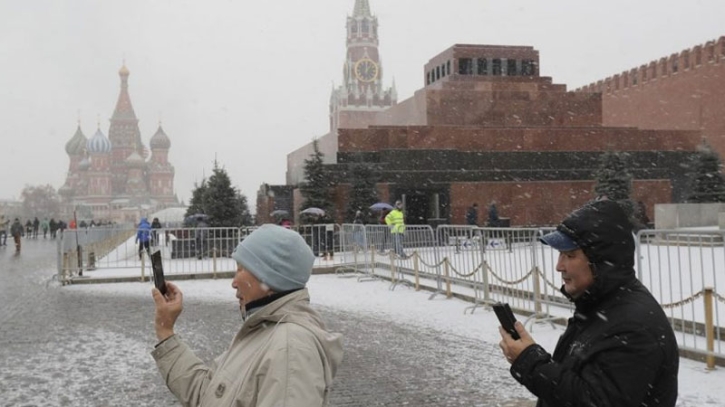Russian mobile calls, internet deteriorates after Nokia, Ericsson leave

When telecoms gear makers Nokia and Ericsson leave Russia at the end of 2022, their departure could steadily cripple the country's mobile networks over the long-term, setting off a deterioration in communication for everyday Russians.
Senior telecoms executives and other industry sources said Russian mobile phone users will likely experience slower downloads and uploads, more dropped calls, calls that won't connect, and longer outages as operators lose the ability to upgrade or patch software, and battle over dwindling spare parts inventories.
Nokia and Ericsson, which together account for a large share of the telecoms equipment market and close to 50 per cent in terms of base stations in Russia, make everything from the telecom antennas to the hardware that connects optical fiber carrying digital signals.
They also provide crucial software that enables different parts of the network to function together.
"We are working towards the end of the year and that's when all exemptions (from sanctions) expire," Ericsson's finance chief Carl Mellander told. Ericsson received exemptions to sanctions from Swedish authorities.
Nokia CEO Pekka Lundmark echoed that sentiment in a interview: "Our exit will be complete. We are not going to deliver anything to Russia."
Russia's economy has so far weathered sanctions and export controls put in place by governments following Russia's Feb 24 invasion of Ukraine, but the impending withdrawal of Nokia and Ericsson could have a more profound impact on Russian daily life..
Maksut Shadaev, minister of communications and mass media, said four telecoms operators were signing contracts to spend more than 100 billion roubles ($1.45 billion) on Russian-made equipment.
Government programs to promote Russian equipment have helped telecoms operators become less reliant on Nokia and Ericsson over the past several years and Russian producers have increased their market share this year to 25.2 per cent from 11.6 per cent last year.
But the severing of ties to foreign firms is expected by industry sources to set back Russian communications by a generation as the rest of the world forges ahead with deploying 5G technologies.
Rural areas will start breaking down first as operators remove equipment to bolster urban networks, the telecoms experts said, while a lack of software updates may lead to network outages, or expose them to cyber attacks.
Chinese telecoms equipment maker Huawei, the biggest vendor in Russia last year with more than a third of the market, will continue to provide software updates and continue maintenance work.
.png)




